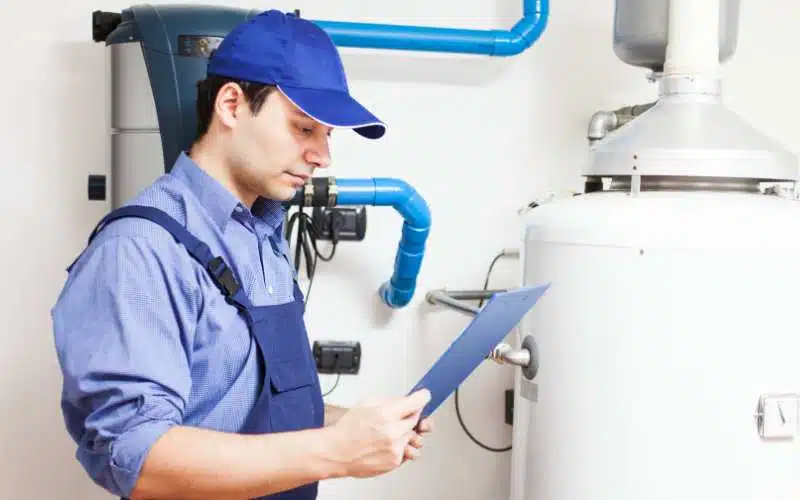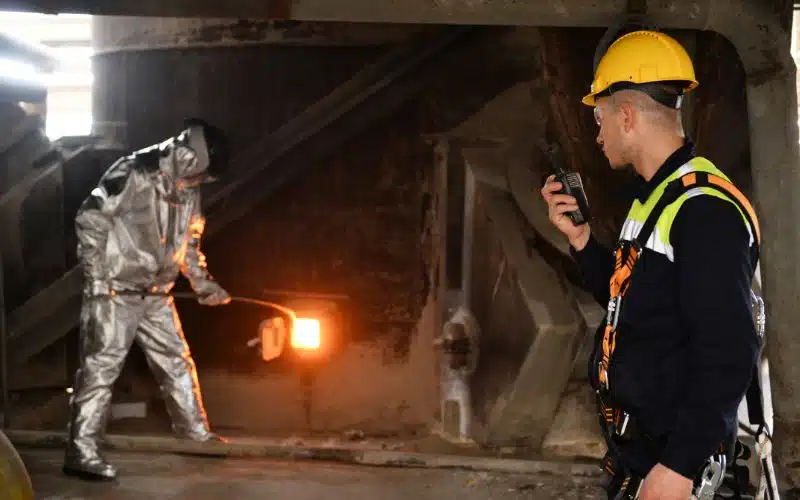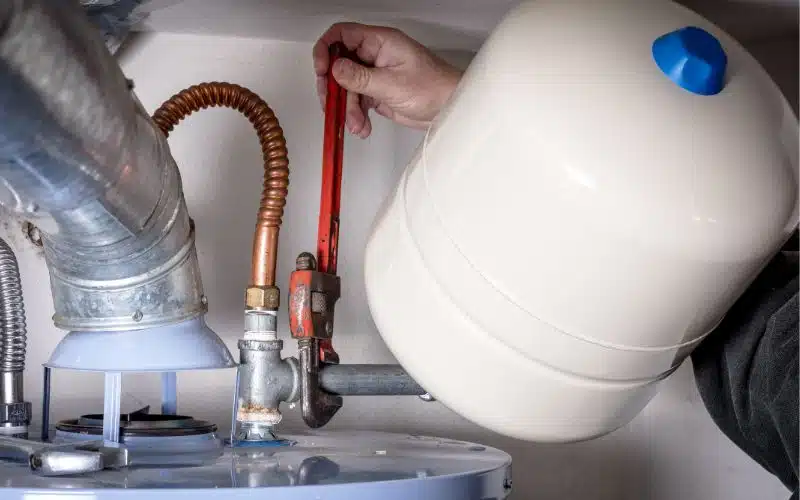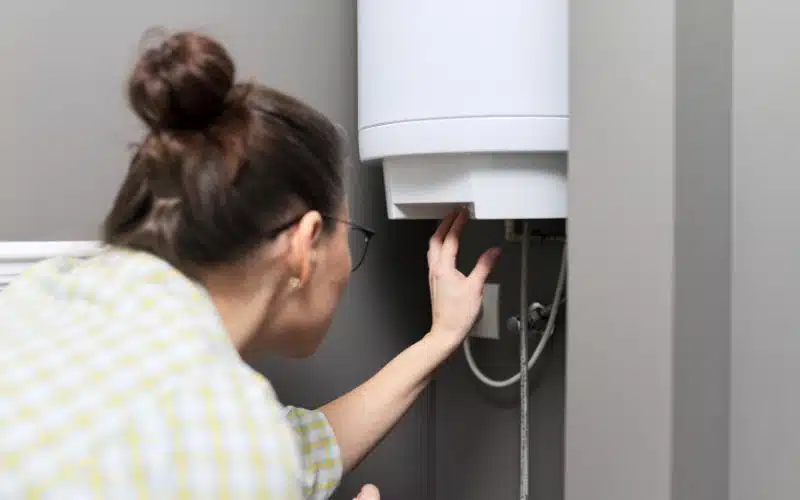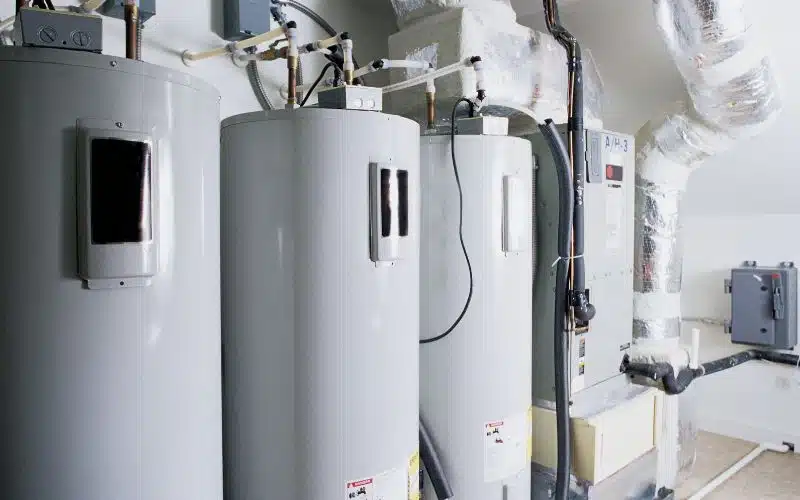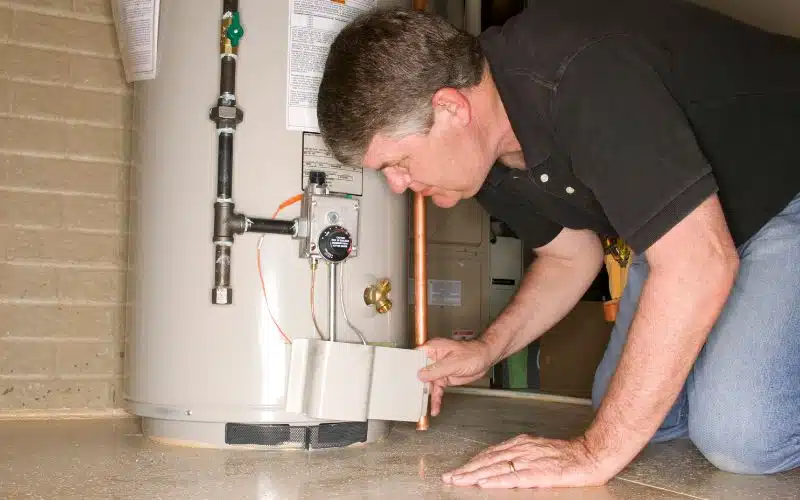There’s no doubt that condensate drain lines play a crucial role in regulating moisture passage and ensuring effective cooling operations. Without functional drain lines, your AC wouldn’t function as it should.
Recently, whether or not air should breathe out of air condenser drain pipes has become a statement of question. So cheer up; this article will give insights into that.
Drain lines act as air passages, but the air shouldn’t breathe out forcefully. And If you find that air is breathing out of the drain pipe, troubleshoot for a clogging problem. It’s most likely there are obstructions like dirt causing a clog.
Why Does Air Come out of My Condensate Drain Line?
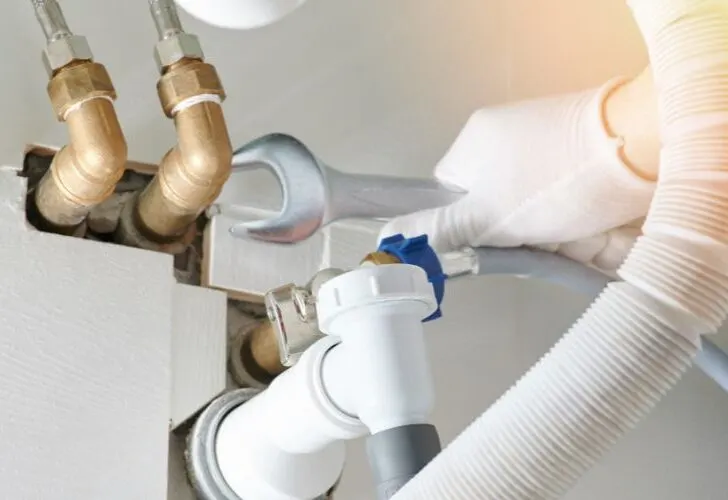
Air coming out of your condensate drain lines is an indication that there’s a clog. In such scenarios, your first line of action should be to inspect for possible hindrances in the drain system.
Condensate drain lines come in handy in removing condensate from air conditioning units.
The condensation usually comes from a dehumidification process where the ac unit removes moisture from its environment. Subsequently, the moisture then undergoes condensation and becomes water.
Condensate drain systems operate so that water(condensed air) from the condenser coils deposits on a set of drain pans.
The drain pump furthermore facilitates the elimination of the drained water by transportation to the drain pipes or wastewater systems.
Usually, the drain pan isn’t deep thus, when the water reaches a certain level, it will overflow and drain out of the air conditioning unit and into the pipe.
Also, the fact that the pipe is fixed below the indoor unit allows gravity to pull the water out.
Anytime the ac drain lines are blocked or clogged, there’s a condensate restriction; this restriction can result in numerous issues like rusting or corrosion.
The restricted condensate will cause rusting in metal components. Consequently, the affected parts become susceptible to damage, and replacement will be needed.
Should Condensate Drains Be Vented?
The venting of a condensate drain depends on the manufacturer of the unit. It’s a good idea but not mandatory, especially on the drain lines.
Unlike sanitary drains, which can collapse when the vents are absent because of negatively created pressures, condensate drains won’t necessarily collapse, but an inefficiency will result.
You should vent the drain line to avoid ugly scenarios; as a guide, establish the vent after the p trap.
The p trap, on the other hand, helps create some water lock because it bends down, so the system won’t draw air.
Finally, installing condensate drains is a common way to eliminate water, and you can find the condensate drains at the rear. They usually have a connection with the drain pans.
Many people don’t vent their condensate drains because they think it’s an unnecessary expense; moreover, the codes don’t give provisions.
But if you’re concerned with health and safety, and want your unit to work well, consider venting your condensate drain.
Vents come in handy in releasing the pressure that builds up inside a condensate drain line. They also help prevent a vacuum from forming while the system operates.
As a guide, It’d help to install the vent on the top of the condensate drain line. Additionally, the venting pipe should be 12 inches from other pipes or obstructions.
It is important to remember that there are no set rules for what type of vent you should use. But in many cases, the vent type is based on the plumbing system used in a building.
For example, a PVC vent would be appropriate if you have PVC pipes, whereas a copper vent would be appropriate if the pipes consist of copper.
However, as much as vents are a good option for condensate drains, there are a few downsides, so while considering the advantages, consider the downsides.
| Upsides | Downsides |
|---|---|
| They are necessary to avoid the accumulation of moisture(airlock) | They create an opportunity for unwanted external factors such as insects and allow dirt to intrude |
| Together with the condensate drains, they act as an effective drainage system option | They aren’t so common in most residential setups, and you must install them close to the nearest point of exit |
Five Signs That Your Condensate Line is Clogged
The condensate drain line drains condensate from your air conditioner, but sometimes it may appear to have some obstructions like debris.
You need to consider specific signs to identify whether or not your condensate drain line is clogged.
Five signs include dripping water, moist structures, mold, bacterial build-up, continuous system shutdown, and excessively high water pressure.
#1. Dripping Water
If you notice water gathering around your air conditioner, it’s most likely there is a clog in the condensate drain line.
Anytime there’s a clog in the Condensate drain, overflow occurs, and consequently, water will start dripping around the unit.
You’ll likewise discover leakages around the unit. And note that the more the system runs, the more the condensate and the more the overflow.
#2. Moist Structures
As a result of water dripping from the clogged drain line, structures like walls around the unit will get moist and decolorized over time.
This sign is pretty noticeable; don’t oversight such situations to avoid future damages.
#3. Mould and Bacterial Build-up
Most homeowners aren’t aware, but a bacterial build-up can also be a clue for clogged condensate drain lines.
You’ll most likely find the bacterial build-up around the drain pans and in areas where there are leakages.
Subsequently, you’ll also perceive foul or offensive odors around the drain due to the mold and bacterial build-up. All these things you should keep in mind.
#4. Continuous System Shutdown
The AC System constantly shutting down is a clue that the condensate drain line is clogged.
To your knowledge, some ACs contain sensors that cut off power to the unit anytime the drain pan is overflowing or filled.
#5. Excessively High Water Pressure in the System
Aside from your AC system continuously shutting off, excessively high water pressure can indicate a clogged condensate drain.
Usually, pressure increases with a decrease in volume, and the situation here is similar.
As a result of the increased pressure, you may likewise notice the air conditioning unit sounding louder than usual.
Thus, if your AC unit seems louder than usual, there could be a significant amount of water in the pipes. In such situations, try to reduce the water.
How Do You Unclog a Condensate Drain Line?
There are many options to unclog your condensate drain line, but the most effective one involves using a standard wet dry vacuum.
- POWERFUL PERFORMANCE: 6.0 Peak HP and 12-gallon...
- DUAL-FLEX TECHNOLOGY: 2-1/2 in. diameter shop...
- BUILT-IN BLOWER PORT: Rear blowing port on this...
- EXTRA-LONG POWER CORD: 20 ft. power cord provides...
Last update on 2024-01-05 / Affiliate links / Images from Amazon Product Advertising API
First, disconnect power from the AC, locate the drain line, then eliminate the obstructions with the vacuum.
Let’s discuss the process in detail.
#1. Disconnect Power From the AC
Before you start the cleaning process, it’d be best to ensure the AC unit isn’t receiving power. This action aims to prevent accidents that may want to surface and ensure safety.
#2. Locate the Drain Line
After disconnecting the unit from the mains, your following action should be to find the drain line.
Specifically, check for the end side of the drain pipe. Again, depending on the setup, you can find the exit point outside or inside the home.
#3. Eliminate the Obstructions With The Vacuum
Attach the vacuum tube to the drain line exit point; ensure it’s tightly fixed. Next, you can tighten the affixation with a seal or wrap it with a piece of cloth.
After tightening the affixation, switch on the vacuum for some seconds, then check to see if the clog is no more. Repeat the process until the pipe is clear. If the clog doesn’t clear.
To ascertain that the drain line is clear, pour water through the internal end and ensure it runs out of the exit. Likewise, turn the AC unit on, and see if everything is as it should be.
You can see that the whole process is straightforward. However, never utilize bleach, as it can be reactive at times.
Instead, sort for alternatives like vinegar, which will prevent bacteria and mold build-up.
How Much Does It Cost to Fix a Clogged Condensate Drain Line?
The cost of fixing your Clogged Condensate drain line depends on many factors; there’s no specific price.
It depends on the hourly rate of the professional you’re contacting; moreover, different locations have their price ranges.
Nonetheless, budget about $70-$200 but in a situation where the evaporator coils need replacements, budget more.
When the condensate drain line becomes clogged with debris, improper draining will result.
This improper drainage can cause overflow and leaks, making your home or office susceptible to damage. Therefore, it’s always good that you fix such issues in time.
The cost will be less if you do the job yourself; the process isn’t complicated. All you need is a standard wet\dry vacuum.
Contrary to doing the job yourself, you can negotiate with the professional on the condition that you have the necessary equipment.
Additionally, it will help if you pay keen attention and learn while he does the job.
Summary
The condensate drain line removes condensate from the air conditioning unit. Ideally, air shouldn’t come out of the drain line with pressure.
If you notice air coming out of the condensate drain line, it’s most likely there’s a clog. Inspect the drain line and ensure there’s no clogging.

